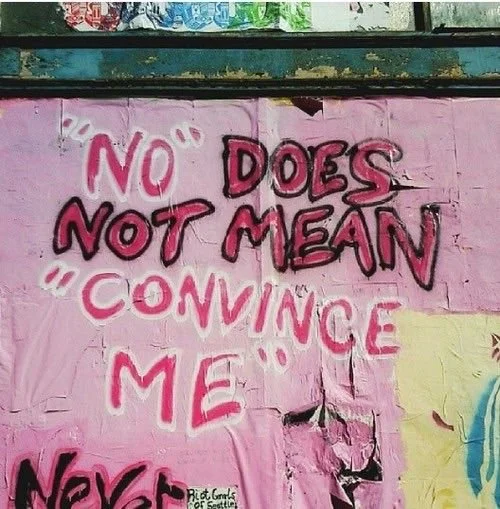The Art of Saying "NO"
The Art of Saying "NO"
by Leo Lukaszevicz
“NO”: A one-syllable word that holds enough potential to stop a conversation. A word that ends ideas and limits our expectations. A word so powerful, sometimes even the bravest are afraid to use it.
Sometimes I find myself saying “YES” to things I wish I said “NO” to because I feel guilty. I feel like I must repay someone for the good they have done for me. I feel like it would be mean to deny a request. I take on tasks from those of authority or loved ones or strangers because even in mundane relationships, why would we not offer help?
It’s quite simple: we cannot do it all. We have to learn to be strong enough to stand up for ourselves. We have to be able to set limits for our minds and acknowledge when our plate is too full. Taking on too many tasks can become overwhelming. Taking on too many responsibilities cuts out time for the little things that make us happy. But, it’s hard to untrain our minds. It’s hard to walk away from the habit you spent so much of your life leaning into. Let’s go over some little ways to help make saying “NO” easier, taking things just one step at a time.
First, recognize what your own personal world looks like when someone requests something of you. Will taking on a new task lead to burnout? Will it worsen your mental health? Will it prevent you from spending time on something you love or something more important? These are a few of many nonnegotiable reasons for saying “NO.” There should be no major sacrifice or expense when it comes to helping others.
When it comes time to say “NO,” be concise. Don’t dance around the word or make an excuse, be clear and transparent. Don’t lead people on and make them think there is a possibility of a “YES,” as this is almost unfair to them. With that being said, you should never feel as if you have to over-explain or justify your reasoning. Saying “NO” is justification enough.
To ease up on some of the guilt, if appropriate, express gratitude for the fact that this person thought of you to do this task. A second thing you can do is to offer up alternatives. Know your own personal limits and suggest other ways you can assist them with their problem without having to take on a huge responsibility. You can even suggest new ways they can complete the task themselves or other people you know who would be willing to do it for them.
Whenever you need to say “NO,” remember WHY you are saying it in the first place. You should not feel guilty for giving yourself time, space, and opportunity to focus on yourself. The funny thing is, you will slowly realize that people are understanding and accepting of those who say “NO”. Believe it or not, people say “NO” all the time. There’s a reason the word was created, and we should be able to use its power for, not only the good of ourselves but to create boundaries and healthy relationships with those we love.
I'll see you next week, but in the meantime, be kind to yourself,
Leo
Photograph: Pinterest


